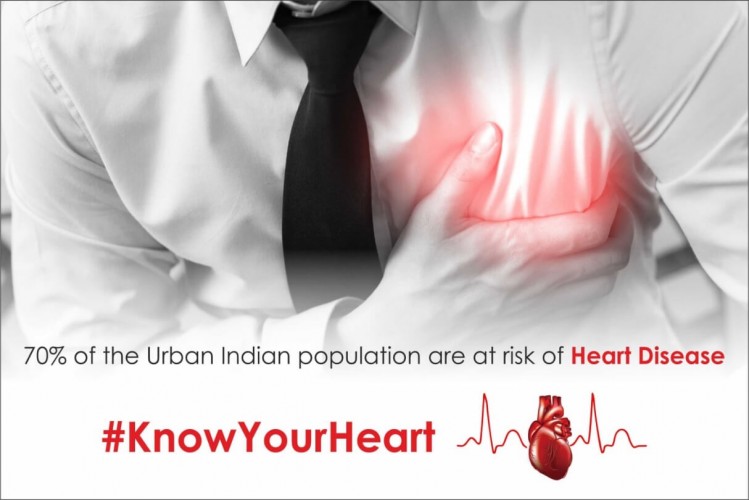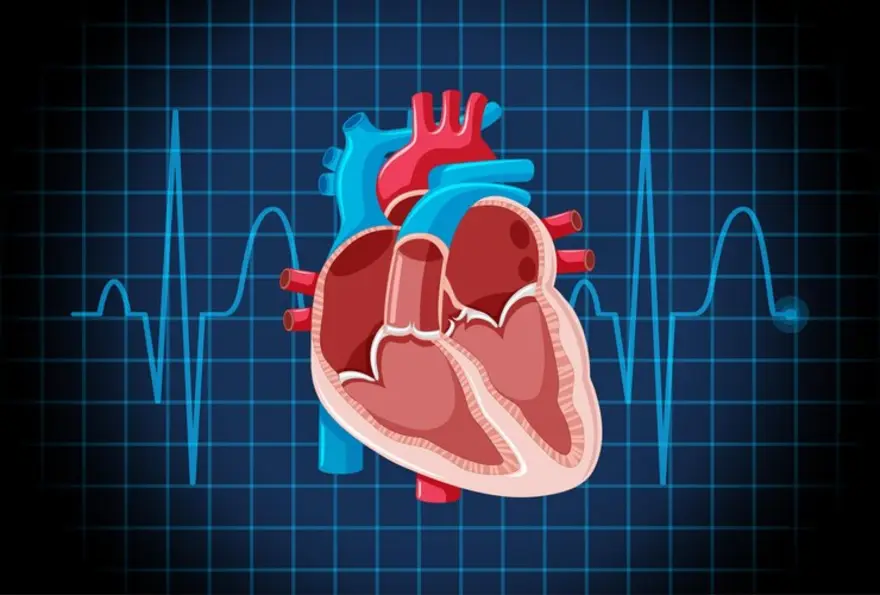heart healthy foods
11 Heart-Healthy Food Diet: Chart for Cardiac Health
Cardiovascular diseases are common in India. Reports from 2020 released that over 4.77 million Indians are affected by some cardiovascular diseases. Increased smoking, drinking, workload, hypertension and irregular lifestyle are the main factors for cardiovascular diseases. Your regular diet plays a huge role in maintaining the normal functions of your heart. Therefore, to maintain the good health of your heart, you have to change your lifestyle. The first change should come from your unhealthy dietary routine. Otherwise, you are likely to face serious health consequences shortly. Read the complete to know which food items are good for your health and how they benefit your heart. What is Cardiac Diet? A cardiac diet is a colloquial term for a heart-healthy diet. This heart-healthy diet is rich in vitamins, minerals, and omega-3 fatty acids. This helps promote your heart's normal functions. Moreover, including healthy and good nutrients, a cardiac diet also eliminates harmful sugary and fatty items from your diet list. Benefits of a Heart-Healthy Diet Undoubtedly, the term 'heart-healthy' answers all the doubts regarding its benefits on the health of your heart. Of course, a properly balanced cardiac diet is good for your heart. For your better understanding, please follow the following points that showcase the list of benefits: · Controls your blood pressure level. · Reduces bad cholesterol. · Increases good cholesterol. · Promotes better blood circulation. · Reduces stomach inflammation. · Maintains your normal body weight. · Increases your metabolism. Is Maintaining a Cardiac Diet Tough? Any healthy routine comes with strict rules. It is likely to put a full stop to your happy food habits. Well, you can drop your worries right here. Indeed, you have to cut down on unhealthy items, but many foods can replace those items without changing much of your habits. Therefore, you can understand that following a heart-healthy diet is not tough at all. Add some of the following items to your diet, and voila! You will surely notice a significant improvement in your heart health. What are Those 11 Delicious Heart-Healthy Foods? In India, a huge part of the population maintains a vegetarian diet strictly. Hence, to make it easy for every Indian, this article has a differentiated category to help every individual. You can choose your diet according to your choice: Vegetarian There is a myth surrounding a completely vegetarian diet: if a person doesn't eat non-vegetarian food items, they will lack the necessary proteins. You don't have to think deeply if you are a vegetarian. 1. Green Leafy Vegetables Remember what your parents used to tell you. Yes, eat your green vegetables. Fresh vegetables are packed with vitamins, antioxidants and other nutrients—moreover, leafy vegetables like spinach, lettuce, collard greens, kale and cabbage. Add broccoli, carrots, potatoes, beetroot, tomatoes, and bell peppers to your regular diet as salads or sauteed vegetables. 2. Fruits Fruits are natural sweeteners if you crave sweet things badly. However, you all know the proverb about apples. Apples, berries (raspberry, blueberry, blackberry), avocado, grape, bananas, strawberry, kiwi, oranges and citrus fruits are all good for your health. Berries are rich in antioxidants that promote your heart health. Try to eat at least one fruit every day. 3. Whole grains The goodness of oatmeal is not unknown to anyone. Besides, other whole grains like brown rice, whole wheat and tortillas are fibre-rich. You can eat brown bread, bagels, and chapattis of whole wheat. If you are a rice lover, replace your daily rice with brown rice. You can also spice up your boring diet with whole-wheat noodles and pasta. But avoid putting sugar in them. 4. Dairy products you all know what our parents did to make us drink a glass of milk. But, you must maintain a few things while you are an adult. Drink skimmed milk rather than whole milk. Moreover, try to eat fat-free yoghurt every day. You can also eat fat-free cottage cheese once a week. 5. Healthy oils Yes, oil is not good for health, but you can consume healthy oils from olive, canola, sunflower and soybean. Moreover, you can also eat peanut butter. 6. Legumes Chickpeas, kidney beans, lima beans and lentils are good for your heart. 7. Nuts You can add nuts like almonds, pistachios and walnuts to your daily snacks to lower bad cholesterol. 8. Dark chocolates Yes, feel free to bite on your favourite dark chocolate bar. Dark chocolates promote in smooth circulation of blood. It also makes you happy! Non-vegetarian 1. Meat Though it's not good to devour meat like monsters, you can eat lean meat(95%), like ground beef, pork shoulders and skinless chicken or turkey for protein intake. Avoid eating organ meats like the brain and liver. 2. Fish Eat sea fish like salmon, tuna and trout for omega-3 fatty acids. 3. Egg Eggs are no doubt good for health. But you should eat the egg white for your good heart. However, if you are vegetarian, you can replace meat, fish and eggs with soy chunks, chickpeas and tofu. But you must eat vegetarian foods even if you are a hardcore non-vegetarian. Conclusion A healthy heart is the mantra to a healthy and happy life. Visit your healthcare professional once a month and maintain regularity. Follow the medications properly. Furthermore, enrich your daily food chart with heart-heathy food items. However, don’t stuff each item into your daily diet forcefully. Metropolis Healthcare is one of India's leading diagnostic centres. Visit your nearest Metropolis Healthcare Centre for any pathological test or cardiovascular test. They have a good reputation for satisfying their clients. Some of the advantages of Metropolis Healthcare are as follows: Latest testing apparatus One-time sample collection Special attention to every patient Clean and sanitised labs Optimum safety measures maintained by the professionals An accurate and checked report in less than 24 hours Final Takeaway Follow the instructions of your doctor. Maintain a balanced diet. Regular exercise Regular checkups after 35 Regular tests in Metropolis Healthcare as prescribed by the doctors
Know about your Heart on this World Heart Day 29th Sept 2018
Heart, the little organ sitting in our chest, works continuously throughout our life. It keeps on pumping and circulating blood in our body. While our heart works tirelessly to keep us going, we do our bit by damaging it in every possible way -many a times subconsciously. On World Heart Day which falls on 29th September, let us come together and make conscious efforts to know this very important organ and vow to take care of it. What is heart and what are its functions? The heart is a muscular organ that pumps blood and circulates it throughout our body, making up the circulatory system. The blood carries oxygen and nutrients to the body tissues which is the basic requirement of survival. What are the different ailments of heart? Heart failure is the deadliest among all the heart problems but to reach to that point the heart goes through a number of phases. It starts from Angina or chest pain due to blockage in the blood vessel supplying blood to the heart muscle. If remained untreated it may eventually lead to Myocardial Infarction or Heart Attack in common terms which happens because of death of cardiac muscle cells. Other ailments in this cycle are LVH (Left Ventricular Hypertrophy), IHD (Ischemic Heart Disease) and CHD (Congestive Heart Disease). Other ailments like Valve diseases and Cardiomyopathy are also common in the Indian Population. The most common of them all which leads to high rates of mortality and hospitalization, is Heart Attack. Let us understand what the possible indicators of the onset of heart attack could be. Signs and Symptoms of heart attack: Many people, who have a heart attack, pose with some warning signs while some remain totally asymptomatic. The early warning signs of a heart attack include: Breathlessness Cold Sweat Palpitation Pain in upper body parts Severe signs and symptoms include High to very high chest pain Severe pain in upper body parts, mainly shoulders and upper arms Nausea and Dizziness Heavy Breathing What are the risk factors of a heart attack? A heart attack can occur to anyone but there are some risk factors that enhance the susceptibility to an attack. They are categorized into Uncontrollable and Controllable risk factors. Uncontrollable risk factors: Age- In Today’s fast-moving world people as young as 35 years of age are also vulnerable, however the prevalence is more common in age group of 60+. Sex- Men are more susceptible as compared to women. However, post menopause, women become more susceptible. Race- People of African descent are more susceptible. Family History- People who have a family history of heart ailments are at a greater risk. Controllable risk factors: Smoking Alcohol consumption Obesity High cholesterol Unhealthy diet Lack of exercise High Sugar Levels Stress How can you prevent a heart attack? There are many risk factors that are not in your control but of course, there are risk factors which we can control. Following are some basic tips that keep away the chances of a heart attack. Adopting a healthy lifestyle should be the first step in dealing with the possible chances of a heart attack. Quitting the awful habit of smoking should be on top priority. Other things that can be done to improve the health of the heart are: Maintaining a heart-healthy diet There are many heart-healthy foods that cut off the chances of a heart attack. The best foods for heart health include: Fishes with high omega-3 content like salmon, mackerel, trout, herring, and tuna Nuts like almonds and walnuts Dark beans like black beans or kidney beans Berries like blueberries, cranberries, raspberries, and strawberries Red, orange, and yellow vegetables like carrots, red peppers, sweet potatoes, etc. Fruits like papaya, oranges, etc. Dark chocolate Flax seeds Tofu Regular workout Working out regularly is a must. Indulge in any physical activity like running, swimming, yoga, or a sport. Quit alcohol and smoking Alcohol consumption and smoking do irreparable damage to the heart. Quit them as soon as possible. Regular Check-ups Regular heart check-up is really necessary. Keep a tab on your lipid, sugar and weight levels. Consult your doctor at regular intervals. The Bottom Line Maintaining a proper heart health is the only thing that could keep us going. On this World Heart Day, come together and pledge that we will know our hearts and will always take care of it. https://www.youtube.com/embed/rlzFwUQhfHU
 Home Visit
Home Visit Upload
Upload
















 WhatsApp
WhatsApp